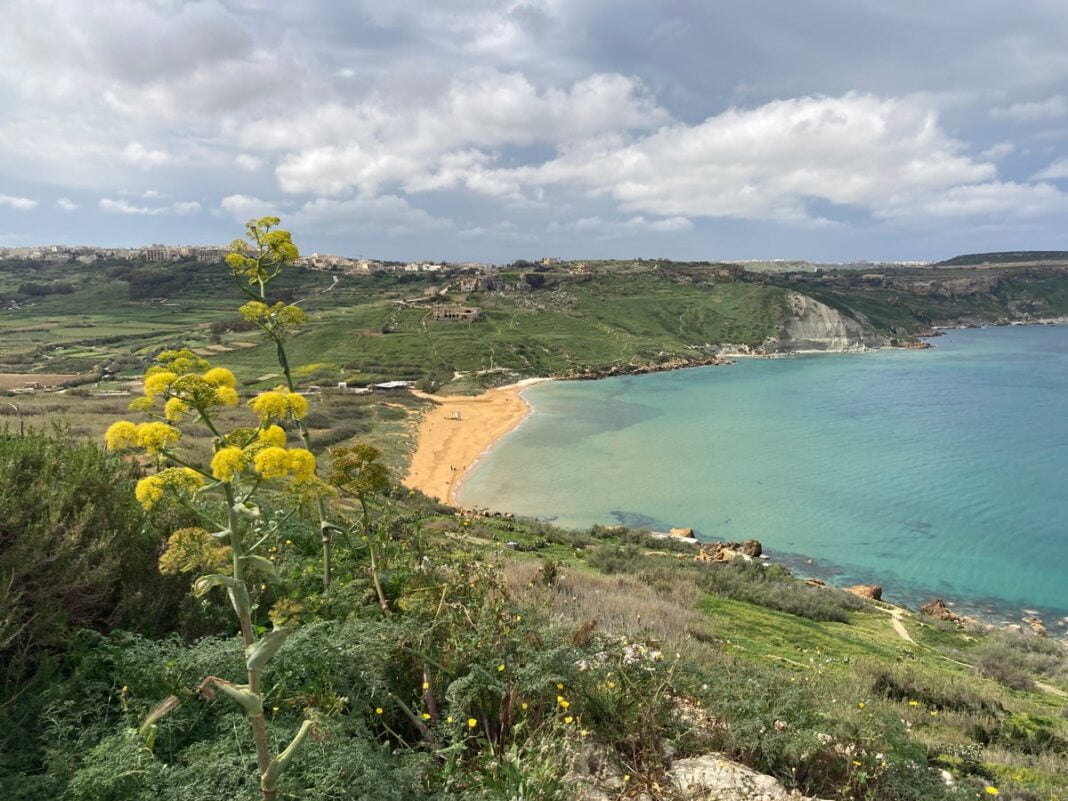The Daily Observer London Desk: Reporter- Sarah Marshal
In a rock-cut cave on the shores of a metallic-blue sea, Alfred Attard waits out the winter surrounded by a clutter of boxes, bags and piles of salt, just as he has for the past 48 years. At Xwejni on the north coast of Gozo, Malta’s smaller sister isle, waves gnaw at ochre-limestone cliffs and a chequerboard of salt pans. On an island defined by the tides, there is nothing more important than salt, yet Alfred is just one of two remaining people who hand-harvest sea salt on the island – the final keepers of a millennia-old tradition. These salt pans have been here, in one form or another, since Phoenician times.
“This is the best salt in the world because it’s 100 per cent natural,” says Alfred, a sprightly, weather-beaten, moustached man, with mischievous blue eyes. His tiny dog, Kiku, curls in a blanket on his lap, and his baseball-capped wife, Mary, sits beside him on a plastic chair. “I learned the art from my stepfather. There’s no machinery – just hot, hard work!” laughs Alfred, holding up the old-fashioned yoke with which he carries two buckets, each laden with 20 kilos of salt.
“From April to October – or until the first storms arrive – I get up at 5am and follow the sun. First, I line the pans with pebbles, then I fill them with saltwater, which I leave to dry for seven days until crystals form. Then I brush the salt into piles, carry it in buckets to the cave and leave it to drip-dry,” he says, gesturing proudly towards a mound of salt in the cave’s antechamber that looks like a giant pile of snow.
Alfred is living proof of the benefits of a simple, happy life lived in harmony with nature and its rhythms. And while the future of hand-harvesting salt may be uncertain, Gozo is very much going back to its green roots.
The driving force behind the island’s aim to achieve carbon neutrality by 2030 is Eco Gozo, which has many strings to its project bow, from tree planting to restoring erosion-preventing rubble walls, organising clean-ups, sustainably managing water, promoting renewable energy, removing plastic debris from the sea and encouraging the use of public transport on the island’s free buses.



